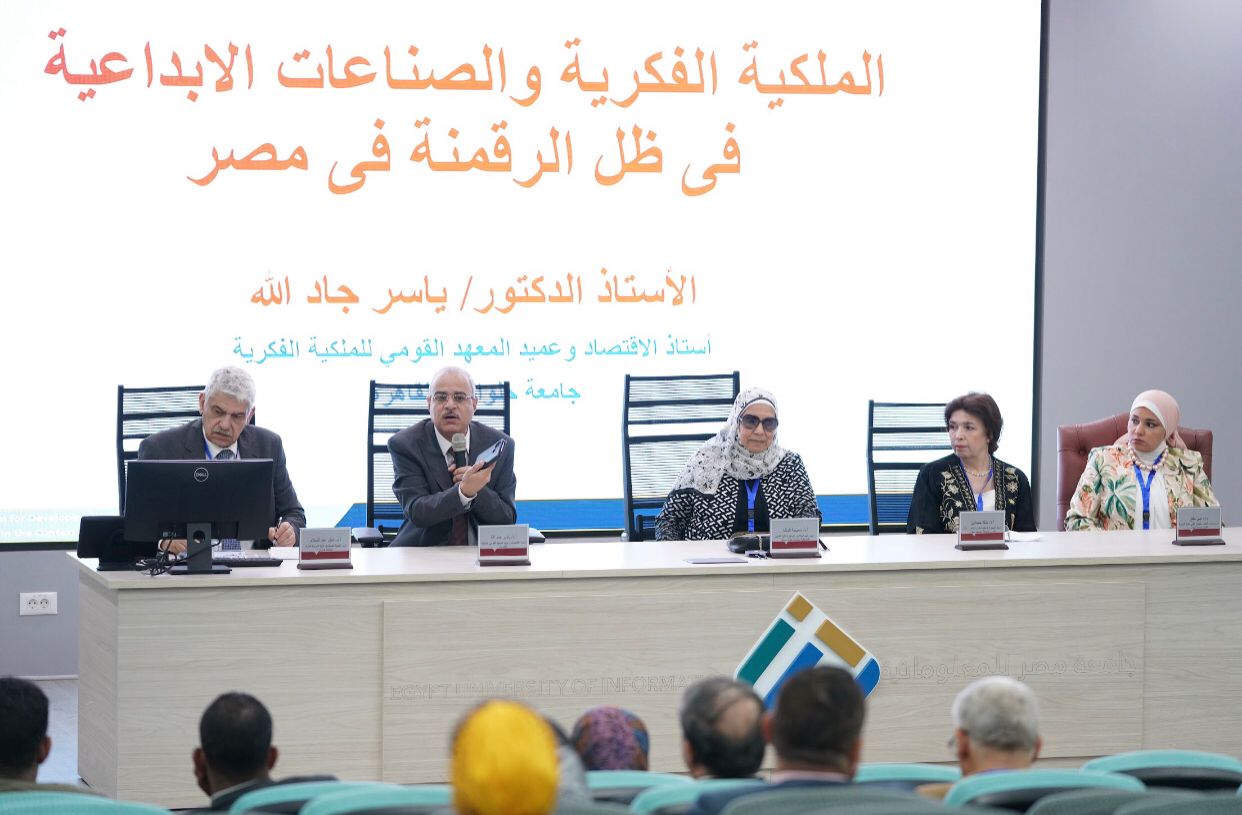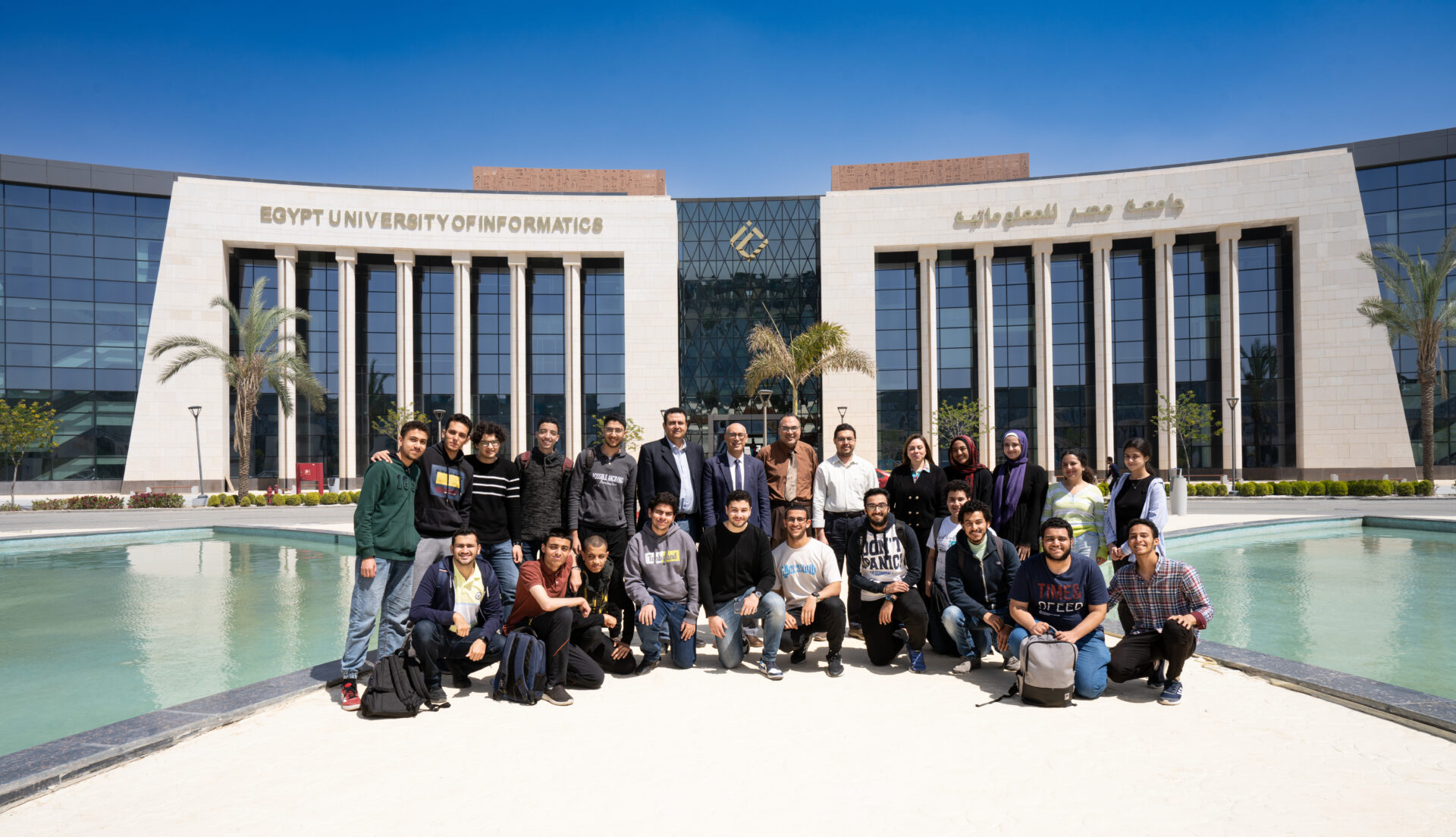
EUI Hosts a Forum on "Developing the Faculties of Arts and Music in the Context of Digital Technology"

On its campus located in the Knowledge City of the New Administrative Capital, Egypt University of Informatics (EUI) hosted the scientific forum of the Arts and Music Education Sector Committee. The event was held under the auspices of Prof. Ayman Ashour, Minister of Higher Education and Scientific Research, and Prof. Mostafa Refaat, Secretary-General of the Supreme Council of Universities. The forum aimed to develop the sector’s faculties in the context of digital technology to produce graduates who meet the needs of the labor market. The arts sector is experiencing rapid changes, necessitating the modernization of arts colleges' curricula to keep pace with these developments.
The forum, titled "A Vision for Developing Work in Sector Faculties in the Context of Digital Technology," discussed the evaluation and adjustment of newly introduced programs in the arts sector’s faculties to ensure they meet societal needs. It emphasized that academic programs must meet labor market demands by providing relevant skills and specializations.
Participants included Prof. Mona Hagres, Assistant Secretary-General of the Supreme Council of Universities, representing Prof. Mostafa Refaat; Prof. Hassan Abdo, Chairman of the Arts and Music Education Sector Committee; Prof. El-Sayed Kandil, President of Helwan University; and several experts and specialists in the fields of arts and music education.
In her opening speech, Prof. Reem Bahgat, EUI’s President, welcomed the attendees, stating: "We are pleased to host and sponsor the scientific forum of the Arts and Music Education Sector Committee, in alignment with the directives of H.E. President Abdelfattah Al-Sisi to develop college programs to integrate into the future sciences system. We believe in the importance of supporting the updating of academic curricula in this sector to keep pace with the changes and developments the world is witnessing in various fields and sciences."
Prof. El-Sayed Kandil, President of Helwan University, affirmed that the forum was held in the appropriate venue, thanking Egypt University of Informatics, which is one of the academic institutions keeping pace with future trends. He highlighted the benefits of diverse intellectual and specialized schools and the variety of study durations to ensure proper coverage of scientific aspects.
Prof. Mona Hagres emphasized the significant role of arts and music education faculties in spreading music and art among the public, having produced generations of artists and musicians who enriched the artistic and cultural movement. However, with the rapid changes the world is experiencing, these colleges, like all other specializations, face new challenges that require planning to keep up with development and renewal to meet contemporary needs.
Prof. Hassan Abdo noted that the forum was part of the state's vision to continually develop the strategy of higher education and scientific research in Egypt to achieve scientific and research progress that aligns with advancements in the developed world. This development, initiated in the late 20th century, has seen rapid progress, particularly with the Fourth Industrial Revolution, digitization, and artificial intelligence.
Prof. Ashraf Zaki, Dean of the Faculty of Digital Arts and Design at Egypt University of Informatics, mentioned that the forum included four discussion sessions. These sessions addressed topics such as developing the internal regulations of arts and music sector colleges in the digital age, the future of design and creativity with digital technology, issues related to intellectual property rights for artistic works in the digital era, and the evaluation and adjustment of newly introduced programs in response to societal needs.
Prof. Zaki added that the forum participants emphasized the need to protect the intellectual property of artistic works in the digital age by enacting unified international laws to protect these rights. He also noted that several recommendations were finalized to develop work in arts colleges in the context of digital technology.
Egypt University of Informatics is one of the first specialized universities in the Middle East and Africa in the fields of communications and information technology and related areas. It was established by the Ministry of Communications and Information Technology in cooperation with the Ministry of Higher Education and Scientific Research to become a leading academic institution offering specialized programs to meet labor market needs in the latest fields of information and communications technology. EUI is located in Knowledge City in the New Administrative Capital.
The university comprises four faculties: Computing and Information Sciences, Engineering, Business Informatics, and Digital Arts and Design, offering 16 specialized programs to meet labor market demands in fields such as artificial intelligence, data science and engineering, electronics and communications engineering, mechatronics engineering, business analytics, digital marketing, animation arts, user experience design, and game design.

